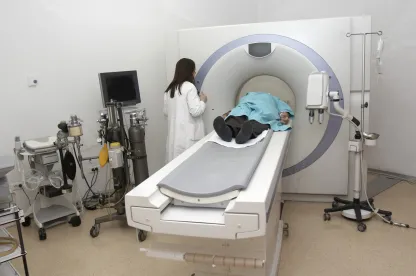Yesterday, FDA issued a Notice announced that it will be holding a 2-day public hearing on November 9-10, 2016 on “Manufacturer Communications Regarding Unapproved Uses of Approved or Cleared Medical Products.”
In the Notice, the agency explained that “FDA is engaged in a comprehensive review of its regulations and policies governing firms’ communications about unapproved uses of approved/cleared medical products, and the input from this meeting will inform FDA’s policy development in this area.” FDA provides some general discussion regarding the need to balance the potential benefits of allowing greater communication of relevant, truthful, and non-misleading scientific or medical information regarding unapproved uses of approved medical products, against the potential risks, the need for controls, and the need to preserve incentives for supplemental approvals.
Although not discussed in the notice, the public hearing arises against a growing tide of court decisions and settlements affirming the First Amendment right of pharmaceutical and medical device companies to engage in truthful, non-misleading speech about approved products, including off-label conditions of use. In addition to the Supreme Court’s decision in Sorrell v. IMS Health, these cases have included United States v. Caronia, Amarin v. FDA, Pacira Pharmaceuticals v. FDA, and others. Further, in May 2016, the House Committee on Energy and Commerce sent a letter to HHS Secretary Sylvia Burwell expressing concern with the fact that FDA has not clarified its policies in the wake of those decisions. That letter also included a discussion draft of a bill that would amend the Food, Drug, and Cosmetic Act to provide greater freedom for drug and device companies to disseminate information about off-label uses.
FDA’s Notice lists a number of particular topics on which it is seeking input from the public through written submissions and during the November hearing. The questions posed by FDA include the following:
How might increased communications from firms about unapproved uses impact the public health, and might the impact differ across different categories of medical products and categories of communications (e.g., communications for clinical decision making vs. research, coverage, reimbursement, or other purposes)?
- What are the drawbacks and risks of communication of preliminary or inconclusive information? Are there safeguards or requirements that would effectively mitigate any drawbacks or risks?
- What information or systems exist to help FDA determine how firms’ increased communication of information about unapproved uses could affect prescribing and medical product development and research?
- How could firms’ increased communication of information about unapproved uses affect patient incentives to enroll in clinical trials?
- How could increased communication impact a company’s incentives to generate robust data to fully assess the risks and benefits of new uses and to apply for FDA marketing authorization for new uses?
- Should there be different approaches for different categories of medical products (e.g., human drugs and biologics, medical devices, animal drugs) or for different disease areas or patient populations?
- To what extent do changes occurring in the health care system that give payors and formulary committees more influence on prescribing decisions provide incentives for firms to generate the high-quality data needed to demonstrate safety and effectiveness for new uses, and how do these dynamics affect incentives for firms to seek FDA approval/clearance of new uses?
- What is the impact of the increasing availability of information from various public sources on firms’ incentives to communicate information about unapproved uses of approved/cleared products?
- What other factors may firms consider when making decisions about providing information about unapproved uses of their approved/cleared medical product, including financial considerations?
- What standards should apply to unapproved use communications to minimize the potential of these communications to be misleading or otherwise cause harm, for example, related to the quality of the information?
- What do health care professionals generally understand about the quality and utility of different kinds or levels of scientific evidence related to unapproved uses? And might this vary by health professional audience? Or by the recipient’s use of the information — e.g., making treatment decisions for an individual patient, informing the direction of further research, making formulary or institutional supply chain contracting decisions, or making coverage determinations?
- What standards should FDA otherwise use to determine if communications are truthful and non-misleading, including disclosures? And how effective are disclosures?
- To what extent is it appropriate for firms to communicate information about unapproved uses of their approved/cleared medical products to patient and consumer audiences? What disclosures or additional information might be appropriate to assure the information is truthful and non-misleading for a lay audience?
- If a firm bases a communication on data that are not publicly available, should information be provided publicly to ensure that the quality and integrity of the supportive scientific information can be adequately evaluated before any prescribing or use decision?
- How should the Agency monitor firms’ communications about unapproved uses of their medical products, and what actions should FDA take with respect to firms’ communications that are determined to be false or misleading or that otherwise raise public health issues?
- What changes to FDA’s regulations and policies should be considered?
Companies or individuals that wish to present information at the hearing must register by October 19, 2016. The deadline for written comments is January 9, 2017.




 />i
/>i
